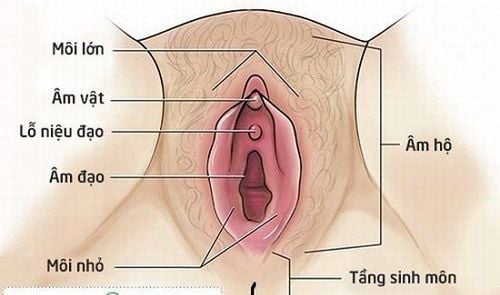This is an automatically translated article.
Recovering from childbirth and caring for a newborn, along with sleepless nights, can leave moms feeling stressed and exhausted. So, how does stress affect breastfeeding and does stress deplete breast milk?1. Does stress affect breast milk?
Stress can affect breastfeeding in two ways: Your milk supply and the composition of your milk.Stress does not directly affect milk supply, so it does not cause loss of breast milk. The amount of milk your body makes depends on how often your baby breastfeeds. The more breast milk a baby drinks, the more milk the mother's body will make.
However, stress can indirectly affect your milk supply, if you don't take the time to eat or drink enough water or don't have time to breastfeed regularly, your milk supply will decrease.
When you're stressed your body releases one of the hormones, cortisol, which can get into ingredients in breast milk that can slow down the flow of breast milk.
2. Causes of Breastfeeding Stress
Here are a few things that can increase a nursing mom's stress level.2.1 Pain from childbirth After giving birth, you may feel pain from the birthing process. Later, when you start breastfeeding, the mother may experience a different kind of problem such as: nipple pain and engorgement... these effects will leave the mother feeling tired and stressed.
2.2 Difficult birth When you have planned to have a normal baby, but in reality, you have a difficult delivery or a cesarean section that is not as planned. This can cause stress and fatigue for the mother.
2.3 Having problems with breastfeeding Early breastfeeding problems such as: Difficulty latching on and sore nipples can be frustrating and stressful. To avoid unnecessary stress, learn as much as you can about breastfeeding before your baby is born and get help getting your baby to latch on properly from the first feed after birth.
2.4 Feeling exhausted Caring for a newborn is exhausting work. Children need round-the-clock care: 24 hours a day. Add to that the other responsibilities in your life and it's easy to become overwhelmed and exhausted.
To combat fatigue, try to sleep when your child is asleep and put aside housework and other responsibilities. And, don't be afraid to ask your partner, family, and friends for help.

Việc đau sau sinh cùng với loạt vấn đề như chăm con, cho con bú,... có thể khiến người mẹ cảm thấy mệt mỏi
3. How to deal with the stress of breastfeeding?
3.1 Financial Planning Money is a major source of stress for many new mothers. Therefore, you should plan your finances before getting pregnant. This will help relieve postpartum stress.3.2 Sharing and confiding about raising children with many other mothers In the process of raising children, mothers need a lot of sympathy and understanding, so in your free time, you can completely participate in social activities. child rearing group to talk and share about raising children with many other mothers. This not only helps you feel comfortable, reduces stress, but also helps you learn useful parenting experiences.
3.3 Take good care of yourself Start with taking good care of yourself, because only your health and optimism can help you take care of your baby.
Try to eat healthy foods and get enough sleep. These two measures are hard to do when you're a new mom, but when you're comfortable raising your baby will be easier. You can enlist the help of a loved one to look after your baby to make sure you don't suffer from severe sleep deprivation.
In some situations where you feel increased stress, you can:
Go for a relaxing walk every now and then, take a few minutes to yourself. Breathe deeply slowly. Focusing on inhaling and exhaling can help calm you down. Talk to you. If you can share your feelings with a friend, partner, or other family member, you may feel better. You can also discuss your feelings with your treating doctor. Exercise can relieve stress and it also releases endorphins into your body. Endorphins are natural chemicals that reduce stress and make you feel happy. Stay away from drugs or alcohol. Drugs and alcohol can make things worse, plus they can get into your breast milk and pass on to your baby.

Cố gắng ăn những thực phẩm lành mạnh và ngủ đủ giấc trong thời gian chăm sóc bé
4. Baby Blues Syndrome and Postpartum Depression
Some stress, fear and anxiety are normal signs after giving birth this is known as baby blues syndrome. However, extreme sadness, guilt, or anxiety can be signs of postpartum depression. Other signs include: Anger, despair, loss of interest or pleasure in previous hobbies, mood swings, or panic attacks.Talk to your doctor about your stress level and how you're feeling, especially if you feel lonely or depressed. If you need it, your doctor will prescribe safe and effective treatments for nursing mothers and their babies.
After giving birth, the mother needs time to rest, too much stress will affect the quality of milk, worse can lead to postpartum depression. Therefore, please pay special attention to postpartum women to limit the risk of depression and unnecessary consequences. If there are signs related to psychology, mothers should not be subjective, immediately go to reputable medical facilities for timely examination.

Buồn bã, cảm giác tội lỗi hoặc lo lắng cùng cực độ có thể là dấu hiệu của chứng trầm cảm sau sinh
MSc. Doctor Nguyen Van Phi - Psychologist, Vinmec Times City International Hospital: with 7 years of experience working as a lecturer in Psychiatry - Hanoi Medical University, Doctor Psychiatrist at Hanoi Medical University Hospital & Central Geriatric Hospital, and a member of the Vietnam Psychiatric Association. MSc. Dr. Pham Thanh Luan - Psychiatrist, Vinmec Times City International Hospital: With 5 years of experience in research, examination and treatment of Psychiatric diseases, trained at prestigious universities trust, practice in-depth expertise in the French Republic. MSc. Doctor Nguyen Trong Hien - Psychologist, Vinmec Times City International Hospital: With 6 years as a lecturer in Psychiatry Department - Hanoi Medical University and Central Geriatric Hospital, together with Dr. Experience in research, examination and treatment of diseases in Psychiatry such as: emotional disorders, stress-related disorders and body dysmorphic disorders, developmental disorders in children, adolescents & childbirth .... Along with the implementation of psychological tests, intensive psychotherapy for diagnosis and treatment, in order to bring the best medical examination and treatment effect.
For detailed information, please contact the hospitals and clinics of Vinmec health system nationwide.
Please dial HOTLINE for more information or register for an appointment HERE. Download MyVinmec app to make appointments faster and to manage your bookings easily.
Reference source: babycenter.com, verywellfamily.com












